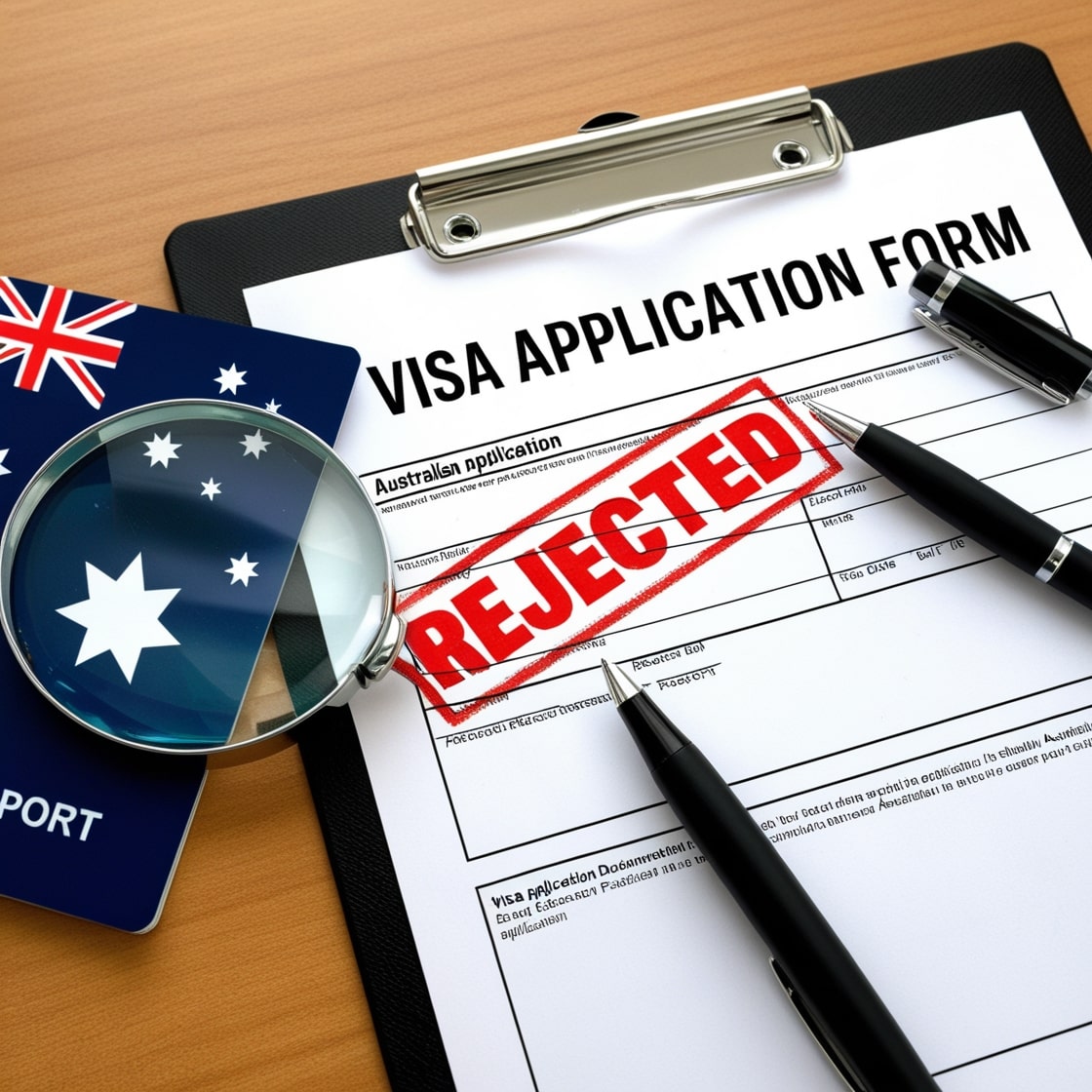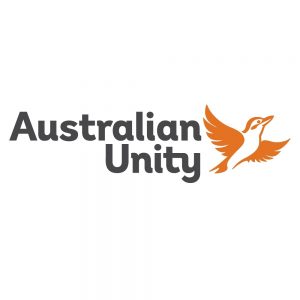Are you going to Australia but still second-guessing about your visa? To enhance your chances of approval for a visitor visa, you must be aware of the most popular grounds for refusal. Here, you will discover the most crucial mistakes that make applicants reject tourist visas to Australia in 2024/25 and the ways to avoid them successfully.
Australia is a tourist-friendly country preferred by several international tourists, but getting a visitor’s visa is a struggle. The Australian Department of Home Affairs assesses each application and ensures that visitors meet all the requirements. The visitor visa grant rate within FY 2022/23 was close to 85%, which means a large number of applications were rejected.
There are new approaches to visa issues all over the world, especially having regard to new challenges in 2020 with COVID-19 cases. From the academic year 2024/25 some of the restrictions have been removed but especially the health and travelling requirements may still be in force. However, some programs may have additional requirements and or interim measures which have not been stated herein that may be important in processing your application.
Knowing why visas are often rejected does not end with avoiding it; it also ensures that one presents the best and truthful reasons why you need to visit Australia. Regardless of your intention, which may involve going for a holiday in the Great Barrier Reef or visiting friends and families in Melbourne, having a good application for this visa is the way of kicking off the journey towards realising your dream.
1. Failure to Meet Genuine Temporary Entrant (GTE) Requirements
The GTE requirement is one of the primary grounds for the refusal of a tourist visa to travellers destined for Australia. This criterion will ensure that the applicant has the intention to stay in Australia temporarily for the purpose of tourism only.
The GTE requirement is mandatory when applying for a visa. When travelling to your home country, immigration officers seek signs that indicate dual intent in your visit and a close bond with your home country. They consider factors such as:
- Your circumstances in your country of origin
- Potential Circumstances in Australia
- The value of the visit to your future.
- You and your family members’ immigration history
To avoid rejection you should provide strong evidence of ties to your home country, such as:
- Property ownership documents
- Terms of Employment which may be a contract signed with your employer/Company
- Family obligations (for instance, caregiving duties for children or other relatives)
- Time being spent in education or educational courses
The applicant should provide a clear tourist schedule of activities that the applicant would like to undertake in the country of Australia and describe how and why it is relevant to your self or work objectives. If you’re visiting Australia you need to be conscious of your marital status, your marital relation or your friends and their relation with you. Bear in mind that it remains your responsibility to demonstrate that you intend to leave for your home country after your visit.
2. Incomplete or Inaccurate Documentation
Completing and submitting documents that lack information is another reason why visitor visa applications are declined in Australia. Due to this, the Department of Home Affairs needs a bundle of documents which will allow considering the application carefully.
Common documentation errors include:
- Loss of pages in any authentic ID such as passports.
- Others include expired passports, letters of reference, old bank statements, and tax returns among others.
- Problem areas where there is a contradiction of different documents.
- Poorly translated documents (if the original is not in English)
Another thing that ought to be done is to develop a list of lists to ensure all the documents required are present. This typically includes:
- Valid passport
- Signed and completed visa application form
- New passport photographs
- Proof of financial capacity
- Travel itinerary
- Evidence of accommodation arrangements
- Travel Insurance
- Character documents (e.g., clearances from the police)
Proofread any information prior to turning it in or submitting it and make sure all served documents are up to date and authentic for the time of your intended stay. This is especially important in the case of documents that are in languages other than English in which case one needs to hire a certified translator. Make photocopies of all documents submitted to you for future reference. It is appropriate to consult with a professional to go through the application. For additional help, our team of migration professionals at Grace International are willing to help you through your visa process.
3. Insufficient Financial Evidence
You will need to show that you can support yourself financially for the period of time that you are in Australia. The Australian Government wants some assurance that visitors are not reliant on public funds or undertaking unauthorised work.
Lack of financial proof can be shown in a number of ways:
- Low bank balance compared to the intended length of stay.
- Large, unexplained deposits shortly prior to application
- No history of regular income
- There is a lack of explanation on covering the expenses of the trip.
To strengthen your application enclose recent bank statements which will identify your normal income and sufficient savings. Be prepared to demonstrate that you have funds available to cover all expenses for travel and subsistence, plus some extra for contingencies.
Provide proof of sponsorship or financial assistance from relatives or friends in Australia. This could be their bank statements, invitation letters, or statutory declarations. Also, please provide a detailed estimate of the budget your planned trip will incur, including estimated daily expenses, accommodation costs, transportation charges, and tours and activities.
Enclosed is proof of paid bookings or tours, if any. Provide evidence of assets such as property or investment that indicate overall financial stability. If retired, provide pension statements or details of income derived from investments.
Keep in mind that the amount of funds varies depending on the applicant’s period of stay and travel plan. It is better to show evidence of greater financial means than you think you may need.
4. Health Requirements not Met
Failure to meet health requirements may result in the refusal of an Australian tourist visa. The Australian government would be protecting public health reducing healthcare costs for visitors and ensuring that healthcare services are available to Australian residents.
Health concerns that could constitute the grounds for refusal of a visa include:
- Active tuberculosis
- Other serious communicable diseases
- Conditions that may require considerable healthcare or community services during the time while you are in prison
To address health concerns undergo all the necessary checkups and secure the necessary health clearances. Health checkups may, however, vary in nature according to your country of origin and the duration of your stay.
If you have a pre-existing condition, you may consider procuring a health waiver if you are eligible. This involves demonstrating that your condition is unlikely to generate significant costs or prejudice access to healthcare for Australian citizens. Inform them about all your specific medical history, if that’s requested.
If you have any prescription medications, bring along a doctor’s letter explaining their necessity. Consider purchasing comprehensive travel health insurance that covers you for most medical expenses. Specifying the truth of your health status is very important; if you have kept your health condition secret, that may result in the cancellation or prohibition of any further travel.
5. Failure to Meet Character Requirements
Certain grounds of ineligibility include visa refusals due to character issues, such as felony criminal convictions or security threats. The Australian government is obliged to protect its citizens and any other visitors.
Factors that may constitute character-based denial include:
- Criminal convictions
- Associations with crime organisations
- History of violent or abusive behaviour
- Previous cancellations of visa or deportation to any country
- Provision of false or misleading information in past applications for visa
To meet the character requirement, get and produce a police clearance certificate from the home country. If you have lived in any other country or country for a total of 12 months in the past 10 years, you may also need a police certificate from that country or country.
Disclose any previous legal issues or visa refusals on your application. Where relevant, provide context and evidence of rehabilitation If you’ve got a minor offence, explain the circumstances and describe how you have changed since then.
Be prepared to provide additional character references, if so required. Remember, a criminal record does not necessarily make you ineligible. The decision-maker looks to factors of the nature and severity of the offence, how long ago it was committed, and your behaviour since then.
6. Lack of Travel History or Unclear Travel Plan
Little or no travel history, in particular, to first-world countries or even having ambiguous travel plans may well be eyed with suspicion. Customs officers could raise an eyebrow wondering if you are serious when making a statement of your intention to return to your home country.
Factors that might raise concerns:
- No pre-travel experience has ever been made to any other country.
- Previous overstay in other countries
- Unclear schedule of the trip
- Travel plans that do not meet personal circumstances (for eg: a long trip while having a job in the home country).
To improve your chances, try to gain some travel history before applying for an Australian visa. It’s better to begin travelling on short-term tours to nearby countries or more open countries.
Give a breakdown of all the activities you intend to undertake together with the accommodation facilities in Australia. Use confirmed bookings in accommodation and most activities wherever possible.
Describe how your plans to get away are compatible with your status. For instance, when explaining your trip, you need to justify how it will blend with your working schedule in case you are working.
If you have travelled little in your lifetime, give a proper and reasonable explanation for choosing Australia as your trip. If you are visiting friends or family in Australia and wish to include their letters of invitation with your application, you should do so.
Just a reminder, the more travel history, the better job applicants will be considered; however, the requirement is not mandatory. First-time travellers for the most part are able to satisfactorily meet the visa requirements by presenting proper and well-organised proposed itinerary and compelling ties to their home country.
7. Fraudulent or Misleading Documents
The provision of false information is a punishable offence leading to the instant rejection of a visa and may have an impact on future visas. The Australian Department of Home Affairs have elaborate ways of identifying fake documents.
Common types of document fraud include:
- The use of fakes, modifications, or counterfeits of official documents (for example, passports; birth certificates; passports).
- Fake employment or a bank statement from an employer or a bank.
- Faked images or other types of proof
To maintain credibility:
- Make sure all the documents are authentic and depict your conditions as close as possible.
- In case you have doubts about a specific document’s authenticity then consult the issuing authority or agency.
- Refrain from using services that promise the provision of fake documents or visa permits.
- In case you have made any errors of some sort on your application, contact the Department at once to rectify them.
- Ensure that you do not contradict yourself with the information given in all your documents as well as in your visa application.
Remember, it is always more advantageous to be truthful about your conditions even though it might be unfavourable to your application. The penalties for forging documents are much worse than a refusal of a visa request.
8. Previous Visa Violation
Having violated the visa in the past by staying beyond the allowed time or having breached the visa conditions in Australia or some other country will not augur well with your application.
Types of visa violations that can affect your application:
- Staying beyond the allowed previous visa period in any country
- Employment when doing so is prohibited under the prior visa financed by the host nation.
- Giving out false information about prior visa application
- Experiencing a cancellation of visa or deportation
To address this issue, always meet the visa conditions set to avoid accumulation of Visa black-list. In case you have prior violations, give a clarification of the violations given earlier and the proof of reform. As to the evaluation criteria this could be, personal transformation, change in financial status, or change in family status
Do state all matters in the application that have any previous concerns. In case the violation occurred due to some contingencies outside your control such as having a medical condition, attach necessary evidence If you work through different programs and your immigration history is complicated, consult a lawyer.
Just remember, if you fail then your application is going to be more difficult since past violations are not eliminated as grounds for disqualification. You will need to offer clear proof that you are a genuine visitor now who will respect the guidelines of the visa.
How to Avoid an Australian Visitor Visa Rejection?
To increase your chances of approval, consider the following tips:
-
Complete Application Accurately:
- Read all instructions carefully before filling out forms
- Double-check all entries for accuracy
- Ensure consistency across all documents and forms
-
Provide Genuine Documentation:
- Submit only authentic documents that accurately represent your situation
- Obtain documents from official sources where possible
- If using copies, have them properly certified
-
Demonstrate Financial Stability:
- Show sufficient funds to cover your entire stay in Australia
- Provide evidence of a stable income or substantial savings
- Include a detailed budget for your trip
-
Provide a Clear Travel Itinerary:
- Outline your planned activities and accommodations in detail
- Include confirmed bookings where possible
- Ensure your itinerary aligns with the purpose of your visit
-
Avoid Overstaying on Previous Visas:
- Maintain a clean travel history by always complying with visa conditions
- If you have previous overstays, provide a thorough explanation
-
Respond Promptly to Additional Information Requests:
- Check your email regularly for communications from the Department
- Provide requested information as quickly and thoroughly as possible
- If you need more time, request an extension before the deadline
-
Apply for the Correct Visa Subclass:
- Research different visa options thoroughly
- Ensure you’re applying for the visa that best fits your travel purpose
- Consider seeking professional advice if you’re unsure
-
Seek Professional Advice if Necessary:
- Consider consulting with a registered migration agent for complex cases
- Look for agents with experience in Australian visitor visas
- Verify the agent’s credentials through the Office of the Migration Agents Registration Authority
What to Do After Your Australian Visitor Visa is Refused?
If your tourist visa is rejected in Australia, don’t lose hope. Here’s what you can do after the visa’s rejection:
-
Understand the Rejection Notice:
-
-
- Carefully review the reasons provided for the refusal
- Identify specific areas where your application fell short
- Consider how you can address these issues in a future application
-
-
Reapply with Corrected Information:
-
-
- Address the issues mentioned in the rejection notice
- Submit a new application with stronger evidence
- Consider providing additional documentation to support your case
- Be sure to disclose your previous refusal in the new application
-
-
Consider an Appeal:
-
-
- In some cases, you may be eligible to appeal the decision through the Administrative Appeals Tribunal (AAT)
- Note that not all visa refusals can be appealed
- Seek legal advice to understand if an appeal is possible and advisable in your case
- Be aware of strict time limits for lodging appeals
-
-
Seek Professional Assistance:
-
-
- Consider engaging a registered migration agent or immigration lawyer
- They can help you understand the refusal reasons and strengthen your application
- Ensure you choose a reputable professional with experience in visitor visa applications
-
-
Improve Your Circumstances:
-
- If possible, take steps to address the reasons for refusal
- This might include improving your financial situation, building a stronger travel history, or strengthening ties to your home country
- Consider waiting for a reasonable period before reapplying, especially if significant changes are needed
Remember, each new application is assessed on its own merits, so a previous refusal doesn’t automatically mean you’ll be refused again.
How to Improve Your Chances of Approval?
To enhance your visa application for a chance of approval, you can use the following tips. By following these tips and thoroughly preparing your application, you can significantly improve your chances of obtaining an Australian visitor visa.
-
Provide Accurate and Complete Documentation:
-
-
- Use a checklist to ensure all required documents are included
- Ensure all information is up-to-date and accurate
- Provide certified translations for documents not in English
- Include a cover letter explaining your circumstances and travel plans
-
-
Strengthen Financial Evidence:
-
-
- Provide bank statements for the past 3-6 months
- Include evidence of steady income or substantial savings
- If sponsored, provide detailed information about your sponsor’s finances
- Explain any large deposits or unusual transactions
-
-
Demonstrate Strong Ties to Your Home Country:
-
-
- Provide evidence of employment, such as a letter from your employer stating your position, salary, and leave approval
- Include proof of property ownership or long-term leases
- Show evidence of family responsibilities, such as dependent children or elderly parents
- Provide information about ongoing studies or business commitments
-
-
Prepare a Detailed Itinerary:
-
-
- Include a day-by-day plan of your intended activities in Australia
- Provide confirmed bookings for accommodation and major activities
- Ensure your travel plans align with the purpose of your visit
-
-
Build a Positive Travel History:
-
-
- If possible, travel to other countries before applying for an Australian visa
- Always comply with visa conditions and avoid overstays
- Keep records of your previous travels, including visa copies and entry/exit stamps
-
-
Address Previous Refusals or Issues:
-
-
- If you’ve had previous visa refusals or immigration issues, address them openly
- Explain how your circumstances have changed since the previous application
- Provide evidence of these changes
-
-
Consider Timing:
-
-
- Apply well in advance of your intended travel date
- Avoid peak processing times if possible
- Ensure you have enough time to respond to any additional information requests
-
-
Seek Professional Review:
-
- Consider having your application reviewed by a registered migration agent
- They can identify potential issues and suggest improvements
- This can be particularly helpful if you have a complex case or previous refusals
Final Thoughts
To rise the probability of approval for an Australian visitor visa refusal, one should understand the general cause. When preparing the application it is preferable to be as accurate as possible, offer authentic supporting documents and purely show your genuine intention to be a temporary resident in the country.
For all the doubts concerning any of the aspects of the application or if your circumstance is unique, consult our team of professional migration agents from Grace International. Do not forget that visas are issued on an individual basis and what may apply to one candidate may not apply to another. It’s important to do your application based on your needs and travel situation.
Those who are interested in visiting Australia, can call us at +61 (03) 9662 9020 or contact us for more services. Our services can be especially helpful with the visa application and related problems to be encountered before filing the application.
Finally, it is very important to be positive throughout this process of communication. Make sure to prepare yourself with all the necessary documents and details then, you can become one of those who can enjoy everything this beautiful country can offer to its tourists.








